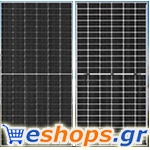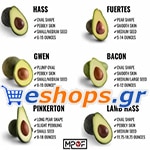What is the marketplace -multi vendor
According to Lengow, over 60% of sales are already made through the marketplace while some of the most successful companies in the world (Airbnb, Amazon, Uber) operate with this model.
On the surface, the marketplace as an idea seems to be much more complex than other similar business ideas, due to its nature as a multi-vendor platform. The truth is that his model marketplace is both applicable and scalable for start up businesses. So how do we really define a marketplace platform and how does it differ from online eshops?

marketplace-ελληνικά-multi-vendor-greece-gr
Marketplace vs- comparison Online Store Definition
The marketplace is a platform where suppliers can come together to sell their products or services to a wide range of customers. The role of the marketplace platform owner is to gather the right suppliers and the right customers to drive sales through a multi-vendor platform - sellers have a platform on which to post their products making them visible to a wide audience (instead of having a place to gain visibility) and sell their products and the market owner earns a commission from each sale. An online store, on the other hand, is an individual store that sells its own products online. All marketing and operations are managed by the company that owns the website and the products.
What is the marketplace -multi vendor
Marketplace owners do not own the stock that their platform sells, unlike online store owners. The Marketplace owner, therefore, leaves the most functional side of the business to the sellers, focusing primarily on promoting the market brand in order to increase traffic to the platform and convert the site's views into sales.
Examples of markets are large companies with huge stocks such as Amazon, Rakuten or eBay or specialized platforms such as Etsy, Runnics or Shop.Surf (Surf & Skate gear and fashion) Instead, an online store is the only company, such as Zara, Apple or Nike, that sells its own products online through its own eshop.
3 key features of Marketplace markets:
To help businesses decide which model fits best, we've taken a deep dive into some of the features of marketplace shopping that make them different from online stores and make them attractive to digital entrepreneurs. They allow for easy inventory management (in fact, they do not require inventory from the market), are more scalable, and allow market managers to focus more on the end user. The following is a more detailed overview:
No stock (No Inventory)
Marketplace platforms are large companies that deal with multiple vendors, provide their catalog, and usually carry much more inventory than online stores. Does that mean they are more complex in management? Not necessarily.
In fact, the opposite can often happen. As an online store owner manages his or her own stock and inventory, they usually have to invest a large amount of money to acquire and manage products and inventory when starting a business (dropshipping models apart).
On the other hand, the variety of products offered in the marketplace markets is handled by external suppliers, so the investment in inventory management is negligible (hybrid markets outside).
As a result, marketplace platform owners need to ensure that their suppliers comply with quality regulations and guidelines. Add to this the fact that SaaS marketplace solutions, such as Shopery, provide state-of-the-art inventory management solutions, with affordable designs, meaning that purchases may be the easiest and most profitable of the two models when it comes to managing some times large and varied stocks.
More satisfied customers
When running an online store, there is a lot to think about: inventory management, website management, customer service, marketing, sales, social media, content and more. Instead, on a marketplace platform, the main goal is simply to provide the best browsing experience for users: suppliers and customers to whom they sell. In particular, for entrepreneurs who utilize a state-of-the-art SaaS market solution to take care of the technological side of the platform, there is much less to do. This means that they can really focus on how to add value to market optimization to maximize user flexibility to better meet their needs.
Of course, none of the above means that managing a marketplace platform is easy as there is a lot of work to be done in terms of content editing and monitoring. Creating a super-vertical marketplace (targeted marketplace platform) for example, which focuses on a specific position requires a lot of work from the market owner to supply sellers and including the right products. But the effort pays off. With so many suppliers selling under one roof, shopping is a very interesting place for consumers to go to find cheaper options and new alternatives. A well-structured marketplace platform can be a huge community with highly satisfied customers.
What is the marketplace -multi vendor
A LEAN , scalable business model
Marketplace offers its owners amazing LEAN, scalable business models. Some of the largest companies in the world are great examples.
Uber, for example, does not own its own cars. Airbnb does not own the apartments and Amazon does not own most of the goods and services they sell. While marketplace platforms need to sell their goods or services at a higher price in order to make a profit, the fact that the marketplace is a targeted platform and reaches consumers means that economies of scale are easier to achieve. This means, unlike other digital businesses, the new owners of one
marketplace may also be surprised at what they can achieve with a relatively small team. With the rise of SaaS technologies helping to launch a marketplace platform with the latest off-store product, infrastructure maintenance is relatively low as maintenance and updates are managed by the provider. Solutions like these mean that markets can function effectively with a very small group of users. This allows marketplace platforms to remain LEAN ready to adapt to the changing and competitive e-commerce landscape.
What is the marketplace -multi vendor
Marketplace platforms will rapidly dominate the world of e-commerce. Indeed, revenue from marketplace platforms is expected to double by 2022. Marketplace platforms are already an attractive option for those looking to move into e-commerce with SaaS solutions like Shopery helping businesses and brands get started and scale. with ease, they just became much more attractive.






























